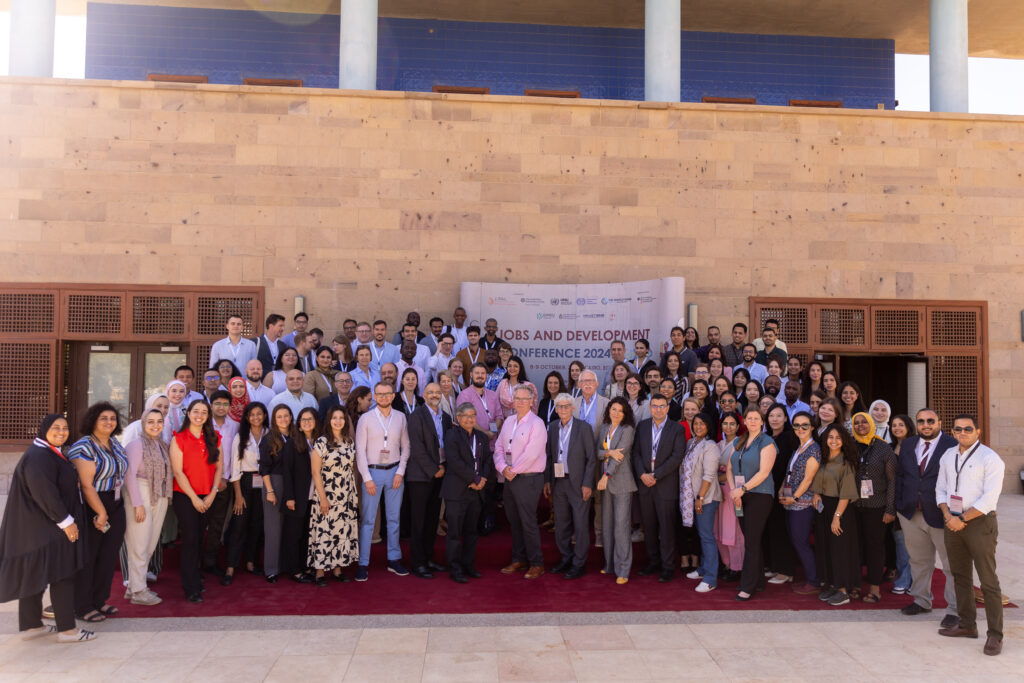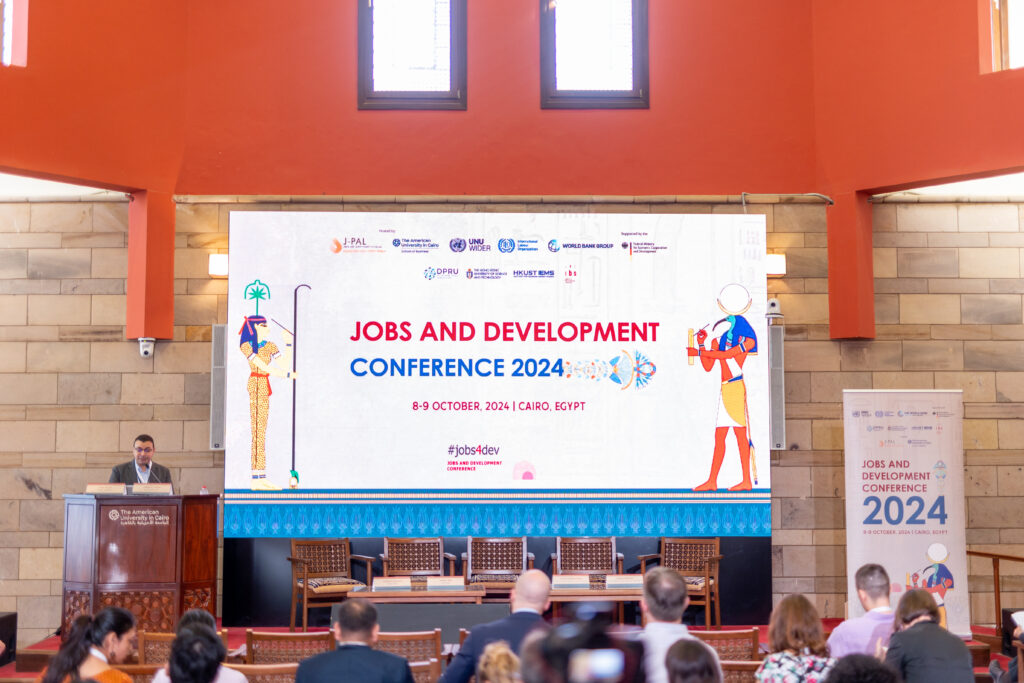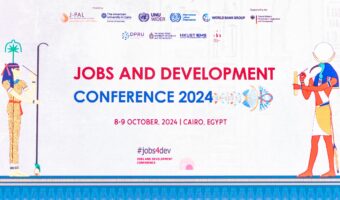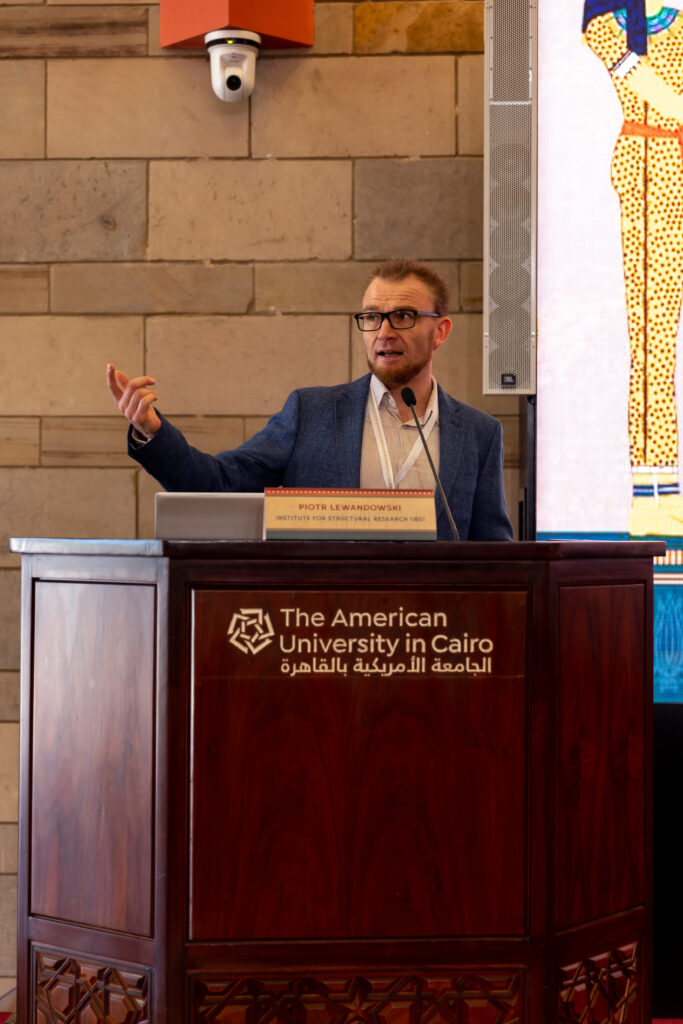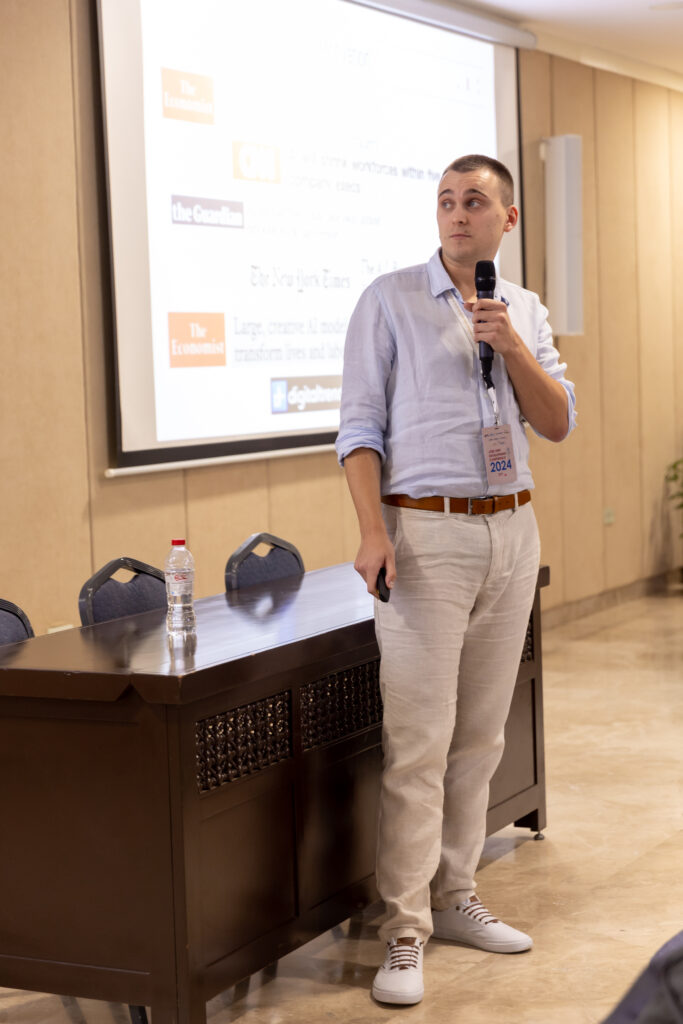The 2024 Jobs and Development conference was held in Cairo, Egypt.
On October 8-9, 2024, The American University in Cairo (AUC) hosted the conference organised by the World Bank, the International Labour Organization (ILO), the Network on Jobs and Development, which includes IBS, and UNU-WIDER.
The conference showcased about 60 papers from researchers and experts focused on labour market policies and challenges in a dynamically changing environment. Prof. David Lam (Professor Emeritus in the Department of Economics and Research Professor Emeritus in the Population Studies Center at the University of Michigan) delivered the keynote lecture titled “The Global Labor Market and the End of World Population Growth”.
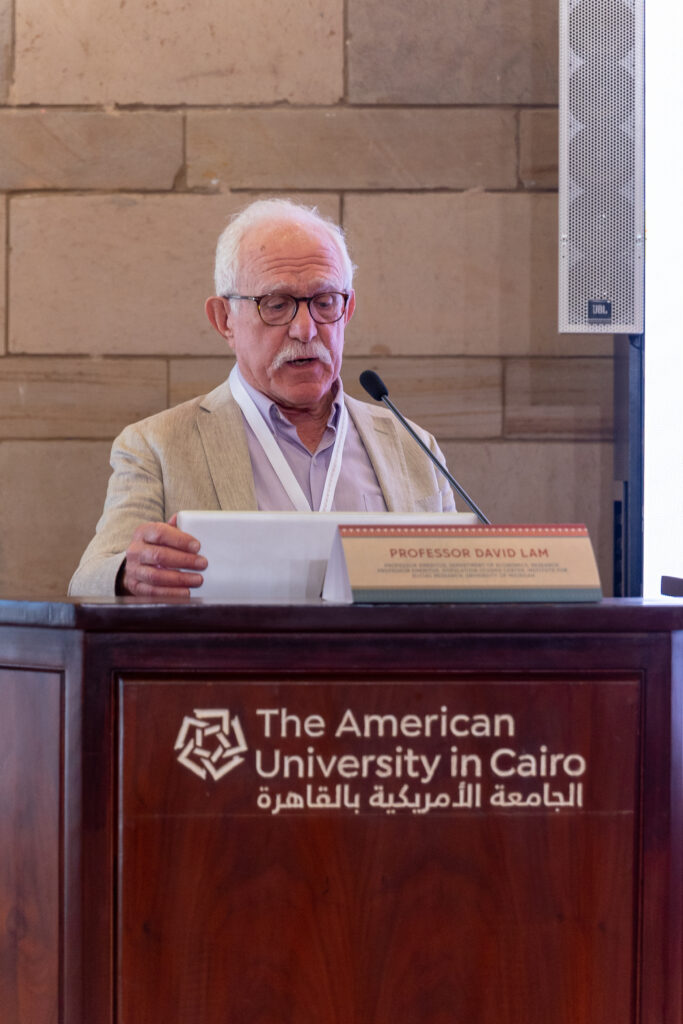
David Lam discussed major demographic trends expected this century, emphasizing the scenarios concerning developing countries. While many developed countries have already stopped growing population-wise, most developing countries still are to achieve their population peaks this century. Africa is expected to witness the most prolonged and rapid population growth, increasing its share of the global population. A rapidly growing population is one of the critical challenges in creating high-quality jobs in developing countries.
Two researchers represented IBS
Piotr Lewandowski presented the findings from the UNU-WIDER project on the changing nature of work and inequality during the special session concerning tasks, skills and institutions. His insights focused on the global distribution of routine work across countries at different development spectrums. He highlighted the determinants of global work distribution and pointed to potential areas of implementation of his work in the context of labour market research.
Karol Madoń presented the findings on the distinct AI exposures in countries at different levels of development. He showed that accounting for differences in worker tasks between countries is crucial in assessing not only country but also occupational level AI exposures. Low-income countries tend to be significantly less exposed to AI than high-income countries.
Invited policymakers delivered a strong message that creating better jobs for more people is the most pressing challenge in developing countries, as it remains the key to sustained poverty reduction.
